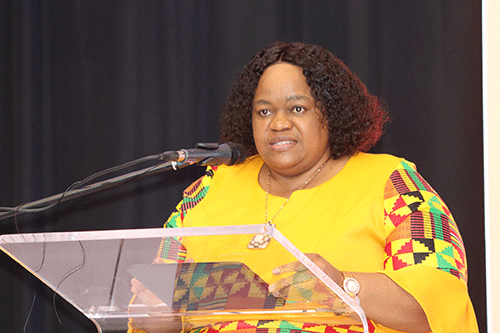The national water utility has in recent months insisted on its pound of flesh for water supplied during the Covid-19 state of emergency from local authorities who opened taps in informal settlements.
They have in turn asked government to pay up. Government has asked local authorities to charge those who can pay while it tries to find the funds to settle the debt.
Abraham Nehemiah, the government-owned company’s CEO recently told a local radio station NamWater is owed over N$1 billion by local authorities. The urban and rural development ministry said it is trying to find additional resources to settle the estimated N$118 million for four regional councils and 35 local authorities incurred in providing free water to vulnerable groups.
The City of Windhoek council resolved in November 2021 to stop the provision of free water in informal settlements from February because of the financial burden the service put on the council. It was estimated to affect over 180 000 residents.
In 2020, President Hage Geingob declared a state of emergency to enable the country to curb Covid-19, and local authorities and regional councils were given a directive to scale up the provision of water in informal settlements, including the placement of water tanks at strategic places.
As a result, the local authorities and regional councils provided free water to the poor which escalated into a huge amount of money, with the government only managing to settle N$73 million for the four regional councils and 35 local authorities including Windhoek.
According to the ministry’s executive director Nghidinua Daniel, the government, during the 2020/2021 financial year, mobilised and paid out to NamWater, 37 local authorities and regional councils an amount of N$72,5 million for water supply related to the pandemic. “The government at the highest level is pre-occupied and doing everything possible to mobilise additional financial resources,” he said.
Daniel indicated that according to the information submitted by regional councils and local authorities, the total estimated cost incurred in the provision of water to the vulnerable is N$117.9 million.
“Ensuring the effectiveness and sustainability (financially and otherwise) of policy measures such as those related to the prevention of the spread of Covid-19 is a collective responsibility of the government at all levels as well as the general public.
The latter, among others, needs to play its part in ensuring that only those who are truly poor and not in a position to pay for water benefit from the relief provided,” he said.
The executive director further urged local authorities and regional councils to avoid and report any abuse and misuse of resources such as water.
“Local authorities, regional councils and NamWater are urged to re-enforce their water demand and supply management measures to curb abuse or misuse, as well as to ensure that any provision of free water is only made for those who are truly not in a position to pay for such, and further that appropriate control measures are put in place at established water points to curb misuse and wastages,” he urged.
He said the local authorities are also encouraged to enforce their credit and debt management policies so that all residents who used to and are in a position to do so are duly paying for the water they consume.


